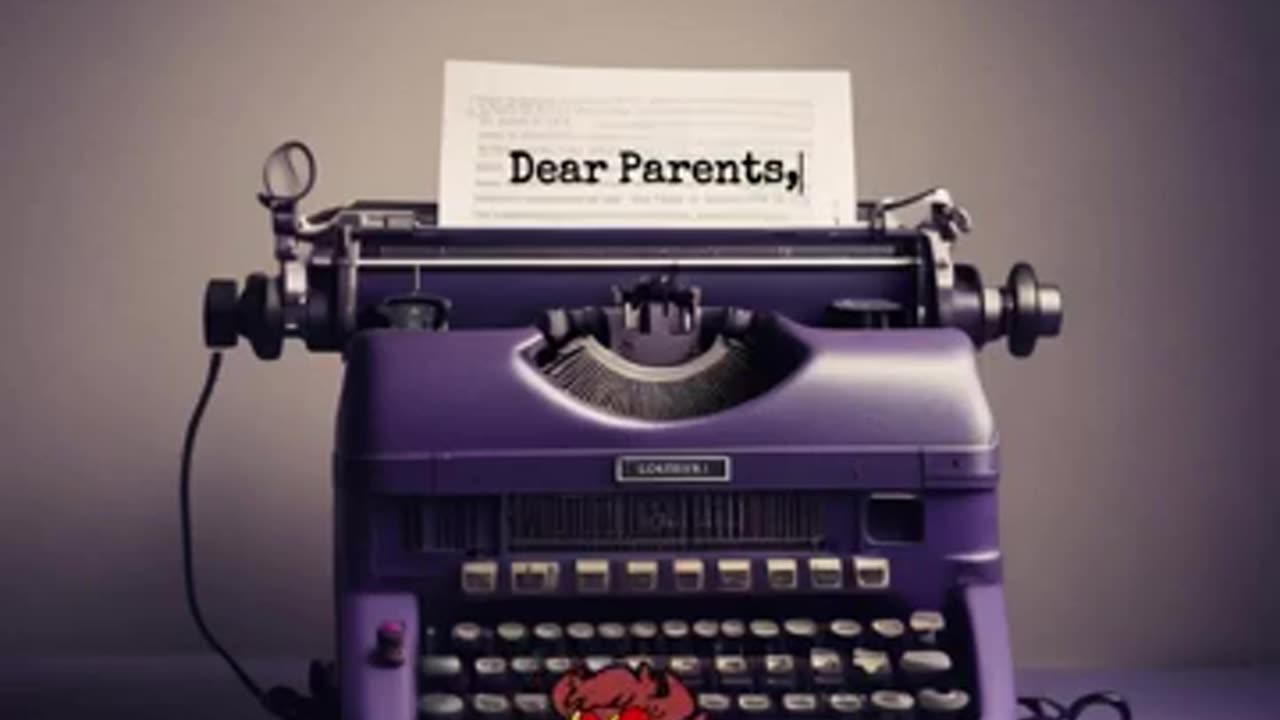Premium Only Content

Letters to Parents
The Psychology Behind Wavy's Actions: An Analysis of Trolling Behaviour.
The behaviour of an online troll, particularly one who takes their grievances beyond the digital realm and into the personal lives of others, is both perplexing and unsettling. The case of "Wavy," a YouTube troll reportedly sending letters to the family members of other content creators, raises questions about motivation, ethics, and the boundaries of online interactions. This essay aims to explore the possible reasons behind Wavy's actions, the psychology underpinning such behaviour, and why it is unlikely to yield the results he anticipates.
1. Trolling as a Means of Control and Escalation.
Trolls often thrive on the power they feel when causing distress to others. By involving family members, Wavy escalates the situation, taking it from the impersonal realm of online feuds to the intimate sphere of family life. This tactic can be seen as an attempt to exert control over his targets by making their private lives a battleground. In Wavy's mind, involving family members might amplify the emotional impact on his adversaries, giving him a sense of superiority and influence.
2. Misguided Perceptions of Authority.
Wavy may erroneously believe that family members hold sway over their relatives’ online behaviour. By contacting them, he might hope to recruit them as allies in resolving his conflicts or disciplining their loved ones. However, this assumption is flawed for several reasons:
Lack of Interest: The family members he contacts are likely uninvolved and uninterested in the dynamics of YouTube feuds. If they were invested in their relatives' online lives, they would likely already be active on those platforms.
Boundary Recognition: Most family members recognize that adults (or even teenagers) are autonomous in their actions, particularly in the realm of social media, and are unlikely to intervene in a dispute they do not fully understand or care about.
3. Projection and External Validation.
Trolls like Wavy might project their own values onto others, assuming that family members share their sense of outrage or concern about online behaviour. In this context, Wavy's actions could be a cry for validation—a way of seeking someone to agree with his grievances. By involving family members, he might hope to gain an ally who shares his perspective, even if this hope is baseless.
4. Lack of Understanding of Social Norms.
Wavy's behaviour suggests a fundamental misunderstanding of appropriate social boundaries. Contacting family members about a YouTube feud breaches the unspoken norms of online interactions, where disputes are expected to remain within the context in which they arose. This misstep could be rooted in a distorted sense of justice or entitlement, where Wavy believes he is justified in using any means necessary to address perceived slights.
5. The Ineffectiveness of the Strategy.
It seems counterintuitive for Wavy to assume that family members would involve themselves in online disputes. In fact, such actions are more likely to alienate family members and strengthen their support for their relatives. If they were uninterested or uninvolved in the first place, Wavy’s intrusion is unlikely to change that dynamic. Instead, his actions may reinforce perceptions of him as intrusive, irrational, and disrespectful.
6. A Reflection of Deeper Issues.
Ultimately, Wavy’s behaviour may point to deeper psychological or emotional issues. The need to escalate conflicts to such a personal level could stem from feelings of inadequacy, loneliness, or a desire for attention. Trolls often derive a sense of purpose from their disruptive actions, and targeting family members might be Wavy's way of amplifying that purpose, albeit in a misguided and counterproductive manner.
In Conclusion.
Wavy's actions highlight the complexities of trolling behaviour, particularly when it crosses the line into personal territory. His attempts to involve family members in online disputes reveal a mix of control-seeking, misjudgment, and possible emotional needs that fuel his actions. However, his strategy is fundamentally flawed, as it misunderstands the dynamics of family relationships and social norms. Rather than resolving his grievances, Wavy’s behaviour is more likely to alienate others and reinforce negative perceptions of him. By analyzing such behaviour, we can better understand the motivations behind trolling and the importance of establishing boundaries in the digital age.
-
 1:57:34
1:57:34
vivafrei
4 hours agoCanada: Fentanyl Capital of the World w/ Sam Cooper! Pierre Poilievre Listening to Viva w/ Pleb!
68.2K38 -
 LIVE
LIVE
Nerdrotic
3 hours ago $8.15 earnedPost-Apocalyptic Woke Hollywood, MineCRAP, CinemaCONNED - Friday Night Tights 348, Chris Gore & Rags
4,730 watching -
 50:21
50:21
Michael Franzese
3 hours agoThe Rise and Fall of Joe Colombo: From Head of the Family to Public Enemy
21.1K3 -
 8:21
8:21
Talk Nerdy Sports - The Ultimate Sports Betting Podcast
1 hour ago4/4/25 - AI Madness & Friday Fire
10.7K -

Dr Disrespect
7 hours ago🔴LIVE - DR DISRESPECT - WARZONE - VERDANSK SOLOS
141K10 -
 LIVE
LIVE
FusedAegisTV
4 hours agoRumble Smackdown! #001 Street Fighter 6 $500 Online Tournament
158 watching -
 LIVE
LIVE
Major League Fishing
3 days agoLIVE! - MLF Bass Pro Tour: REDCREST - Day 2
192 watching -
 1:08:28
1:08:28
Twins Pod
10 hours agoConservative Latina FIRECRACKER Running For CONGRESS! | Twins Pod - Episode 59 - Valentina Gomez
56.1K12 -
 1:07:56
1:07:56
Jeff Ahern
3 hours ago $1.50 earnedFriday Freak out with Jeff Ahern (1pm Pacific)
30.7K -
 2:11:58
2:11:58
The Quartering
6 hours agoTrump's Job Market EXPLODES, Bill Burr Runs, Matt Walsh Triggers , Leftist Attacks My Company
191K97